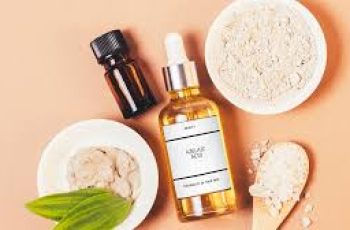
What Happens to Your Skin When You Drink Lemon Water?
Lemon, scientifically known as Citrus limon, is one of the most popular citrus fruits worldwide. It is widely used not only in cooking but also in cleaning and beverages.
People often add lemon slices or juice to water to enhance flavor and health benefits.
Many individuals start their day with lemon water, believing it to be a healthy habit.
Adding lemon to water is an easy way to increase the intake of vitamin C and potassium while improving plain water’s taste, encouraging hydration.
Some people claim lemon water benefits the skin, but scientific research on this is limited and mostly based on animal studies or indirect evidence.
More human research is needed to confirm these skin benefits.
Skin Benefits of Drinking Lemon Water
Even though research is not extensive, drinking lemon-infused water may offer several potential skin advantages. Here are some benefits often attributed to lemon water:
Keeps Your Skin Hydrated
Your skin is the body’s largest organ and relies heavily on adequate hydration to function properly. When dehydrated, your skin may appear dry, flaky, or dull, and your lips might become chapped or cracked.
Many people find plain water boring, but adding lemon improves flavor, making it easier to drink more throughout the day. Proper hydration helps maintain skin moisture and elasticity.
Depending on your age, sex, and physical activity, you may need between 11 to 15 cups of water daily to stay well hydrated. Lemon water can help you meet this goal comfortably.
May Help Prevent Premature Skin Aging
Keeping your skin hydrated may help slow the formation of fine lines and wrinkles. Well-hydrated skin is less prone to dryness, roughness, and the early signs of aging.
Some animal studies suggest lemon water might reduce oxidative stress, a process that contributes to premature aging of skin cells.
Oxidative stress damages skin proteins and lipids, accelerating wrinkle formation.
More clinical research in humans is necessary before definitive claims can be made about lemon water’s ability to prevent premature aging.
May Protect Skin and Cells From Free Radicals
Vitamin C is a powerful antioxidant found abundantly in lemons. Drinking lemon water can boost your daily vitamin C intake, supporting your body’s defense against harmful free radicals.
Free radicals are unstable molecules that damage skin cells and accelerate aging. Antioxidants like vitamin C neutralize free radicals, reducing their harmful impact on skin and overall health.
Vitamin C also supports wound healing and may reduce skin swelling or edema. Deficiency in vitamin C can lead to scurvy, a condition marked by poor wound healing and bleeding under the skin.
May Promote Collagen Production
Collagen is a key protein that provides structure and elasticity to your skin. Collagen production declines naturally with age, contributing to sagging skin and wrinkles.
Vitamin C plays an essential role in collagen synthesis, so consuming lemon water might help your body produce more collagen, helping maintain firmer, smoother skin.
Vitamin C’s antioxidant properties also protect collagen from damage caused by free radicals, potentially preserving skin’s youthful appearance longer.
How to Make Lemon Water
Making lemon water is simple and can be customized to suit your taste preferences. Here are two common methods:
Cold Lemon Water Recipe
1 lemon
8 cups (64 ounces) cold water
Wash and thinly slice the lemon—no need to peel. Place slices in the bottom of a pitcher and gently mash them to release juices. Add cold water and refrigerate for at least an hour.
The lemon flavor strengthens the longer it sits.
Hot Lemon Water Recipe
1 tablespoon freshly squeezed lemon juice
1 tablespoon honey
1 cup hot water
1 lemon wheel for garnish
Heat water until hot but not boiling. In a mug, combine lemon juice and honey, then pour in hot water and stir until honey dissolves. Add a lemon wheel for extra aroma and presentation.
Tips for Drinking Lemon Water for Skin Health
While there is no strict guideline on how much lemon water to drink for skin benefits, many experts recommend starting your day with one glass.
Adding one lemon wedge to your water provides small but useful amounts of key nutrients like vitamin C, potassium, and calcium.
Here’s a rough nutrient breakdown from one lemon wedge:
Phosphorus: 0.47 mg
Potassium: 6.08 mg
Vitamin C: 2.28 mg
Folate: 1.18 mcg
Calcium: 0.35 mg
Magnesium: 0.35 mg
Lutein: 0.88 mcg
The National Kidney Foundation suggests mixing 4 ounces of lemon juice daily with water to reduce kidney stone risk.
However, this large amount of lemon juice may worsen acid reflux or irritate sensitive stomachs.
Always check with a healthcare provider before starting a lemon water routine, especially if you have digestive issues or sensitive teeth.
Risks and Side Effects of Drinking Lemon Water
Lemon water is generally safe for most people, but there are some potential downsides to consider.
Dental Erosion
The acidity of lemon juice can wear down tooth enamel over time. This chemical erosion can cause tooth sensitivity and visible damage, increasing the risk of cavities.
To protect your teeth, drink lemon water through a straw and rinse your mouth with plain water afterward.
Avoid brushing your teeth immediately after drinking lemon water to prevent further enamel damage.
Gastrointestinal Issues
Lemon water’s acidity may worsen acid reflux symptoms or cause heartburn in sensitive individuals.
It can increase stomach acid production, leading to nausea or bloating.
People with difficulty swallowing (dysphagia) or certain digestive conditions should limit citrus consumption and consult their doctor.
A Quick Recap
Drinking lemon water in the morning is a common habit because it helps increase vitamin C and potassium intake.
While evidence supporting skin benefits is limited and mainly based on animal studies, staying hydrated is undeniably beneficial for skin health.
If you plan to drink lemon water regularly, consult with a healthcare professional first. Excessive lemon water intake can harm your teeth and digestive system due to its acidity.
DQH Knowledge drop: In your 20s, your skin cell turnover decreases. (Cell turnover is a key component in keeping your skin youthful.) You know what else slows down? Your collagen production. Starting in your 20s, collagen decreases by about 1 percent per year. Should you want to prevent fine lines and wrinkles, start by eliminating behaviors that contribute to premature aging. “If it’s bad for you, it’s bad for your skin,” says dermatologist Michel Somenek.
“Cigarette smoking reduces blood flow to the skin and causes premature wrinkling and a dull skin texture. Making the repeated pursed motion to inhale can also cause smoker’s lines. Alcohol and recreational drugs are toxins for the skin that damage its cellular structure and DNA,” Somenek tells us. “The faster you eliminate vices while you are young, the better chance your skin and body have to recuperate.” Also, adopting an anti-aging routine in your 20s is key. After all, the best offense is a good defense. We spoke to Somenek and experts Joshua Ross and Audrey Kunin to find out more.
Keep reading for the best anti-aging products for your 20s, according to skincare professionals.
Sunscreen
“We all know that the sun is the number one cause of skin aging and starting the prevention in your 20s is very important,” Ross says. “The majority of your sun damage won’t start to appear until you’re in your 30s, so don’t wait until you see it surface or you’ll be behind the curve. Stay ahead of it with a good-quality zinc-based sunscreen worn daily.”
Farmacy Green Defense Daily Mineral Sunscreen
An invisible sunscreen with SPF 30, plus botanical extracts meant to protect skin with tons of antioxidants. Bonus: It’s clean and fine to use under makeup.
Bareminerals Complexion Rescue™ Tinted Moisturizer Broad Spectrum SPF 30
Although we recommend you use your SPF and moisturizer separately, we also understand moments when you don’t have time or energy for that extra step. For those times, this bareMinerals moisturizer is a great thing to have on hand.
Vitamin C Serum
“A great introduction to anti-aging is to start with a vitamin C serum in your morning skincare routine,” Ross says. “It’s a powerful antioxidant that will neutralize free radicals and brighten the skin.” He adds that it’s a great way to counteract the effects of the sun’s harmful rays, which, as previously mentioned, are among the biggest causes of premature aging.
Drunk Elephant C-Firma™ Vitamin C Day Serum
The Drunk Elephant C-Firma is a lightweight serum that promises to give skin a glow by combining the brightening powers of vitamin C with ferulic acid, l-ascorbic acid, and vitamin E. The included sodium hyaluronate is meant to replace hydration loss, so you shouldn’t have to deal with any irritation.
Sunday Riley C.E.O. Rapid Flash Brightening Serum
This potent serum is jam-packed with vitamin C (15 percent, to be exact), which means it’s a potential superstar at both brightening skin and dousing it in antioxidants.
Peptides
Using peptides on your skin has many benefits, says Somenek. “The skin barrier is what defends the body against pollution, UV rays, bacteria, and toxins. It can be damaged by several everyday factors. Using topical peptides aids in building a stronger barrier,” he says. “Peptides comprise elastic fibers, which are a type of protein. These fibers help to make skin appear taut and firm. Peptides can also help repair damaged skin, relieve inflammation, and even out skin tone. Some peptides can kill acne-causing bacteria that is common in 20-somethings.”
Kunin agrees, saying, “Peptides are an excellent entry point for supporting collagen.” She recommends looking for face and eye treatments that contain these collagen-boosting powerhouses.
Charlotte Tilbury Magic Eye Rescue Cream
This Charlotte Tilbury super-emollient eye cream has a base of coconut oil and shea butter (read: it’s incredibly hydrating). Botanicals plus peptides are meant to help reduce dark circles and boost collagen, respectively.
This creamy moisturizer serves up potent collagen-boosting peptides and pycnogenol, and antioxidant-rich vitamin C. “Instead of sitting on top of the skin, peptides penetrate the outer layer so they go deep. The ‘signals’ they send tell the cells to produce elastin and collagen, which are needed for youthful-looking skin,” explains Somenek.
At-Home Peel Pads
Remember that skin cell turnover fiasco we talked about earlier? One way to help support it is by exfoliating. “Exfoliation is important to help keep skin fresh and luminous,” Kunin says. She recommends using at-home peel pads as an easy and effective way to exfoliate.
“The goal in your 20s is to fight the slowing pace of cell turnover. It is wise to use products that gently exfoliate, yet still remove oil and other impurities. Products that have Alpha Hydroxy Acids (AHA) or Beta Hydroxy Acids (BHA) are a good choice.”
According to Somenek, you should only exfoliate two to three times a week. “People of all ages are guilty of over-exfoliating and that can be too much of a good thing,” he says.
Dermadoctor Kakadu C Intensive Vitamin C Peel Pad
A few swipes of this Derma Doctor powerful peel pad promise to leave your skin glowing and smooth, thanks to the seven (yes, seven) types of chemical exfoliants, including AHA and BHA. It also contains vitamin C via Kakadu plum extract for added brightening and antioxidant protection.
KEY INGREDIENTS Kakadu plum extract is sourced from the Kakadu plum, a fruit grown in northern Australia. It contains vitamin C, which restores the skin’s natural barrier, increases collagen production, and soothes irritation.
Dr. Dennis Gross Skincare Alpha Beta® Universal Daily Peel Pads
These are the gold standard of peel pads, with a cult following and over 900 five-star reviews on Sephora. They’re easy to use and contain a blend of anti-aging exfoliating acids.
Emollient Night Cream
“In your 20s, you need to start upping the hydration in your skincare routine. You may have been cautious of over-moisturizing because of acne in your teens, but as you enter your 20s, your skin transitions and becomes drier,” Ross says. “I recommend an emollient night cream added into your evening skincare regimen.”
“Twenty-somethings need to make sure that they are not using creams that will clog their pores and cause excess oil production,” says Somenek. Opt for non-comedogenic products.
Cerave Skin Renewing Night Cream
One great choice is the CeraVe Skin Renewing Night Cream, which is a non-comedogenic night cream that leaves skin soft and glowy. It combines the moisturizing powers of ceramides and hyaluronic acid.
RoC Retinol Correxion Max Hydration Creme
“The best night cream ingredients contain retinol, benzoyl peroxide, and/or salicylic acid or hyaluronic acid. The goal is to moisturize, yet remove excess oil,” says Somenek. This Roc Retinol Correxion cream fits the bill as it contains both hyaluronic acid and retinol so it promises to moisturize while also being non-comedogenic.



